IG WATERS GROW HUGE MUSKIES, BUT THE ABILITY TO RELEASE THEM SUCCESSFULLY CAN BE COMPLICATED

Over the last two decades we have seen the focus of musky fishing move toward big water fisheries. State agencies around the Great Lakes are stocking and promoting their Great Lakes fisheries while also stocking larger waters in many inland areas. Thus, big water is the trend.
These waters provide a lot of new challenges such as boat control, bigger waves, and more water to cover to succeed. However, one such challenge that is rarely talked about is the added difficulty we have releasing fish back into big water lakes, particularly on rough days. In order to make sure we have as close to a 100 percent release rate as possible, there are several things to keep in mind while handling muskies on large waters.
Big Wind & Waves
The greatest difference when fishing big water is the presence of wind and waves that will always be moving your boat and the water around you. Unlike smaller lakes which are typically calm, big water is rarely calm and almost always seems to have a chop, which means your boat and the water are always moving. This movement poses several major problems when handling fish.
Muskies are like most fish in the way their gills work, meaning they pull water through the front of their mouths over the gills to breathe. This process works best with the water moving from front to back.
Be Prepared
This concept of only allowing water to travel through a musky’s mouth from front to back is rather easy in calm water. If the fish is simply sitting in the water when the water is not moving the fish will use its gills to do that all by itself. Therefore, when you are fishing a normal-sized inland lake and you net a fish, typically you set the net yoke on the gunnel of your boat and allow the large bag of the net to be like a cage in the water, which allows the fish to stay in the water and breathe while you get pliers, gloves, camera, etc., ready to unhook and release the fish.
This story is from the {{IssueName}} edition of {{MagazineName}}.
Start your 7-day Magzter GOLD free trial to access thousands of curated premium stories, and 9,000+ magazines and newspapers.
Already a subscriber ? Sign In
This story is from the {{IssueName}} edition of {{MagazineName}}.
Start your 7-day Magzter GOLD free trial to access thousands of curated premium stories, and 9,000+ magazines and newspapers.
Already a subscriber? Sign In
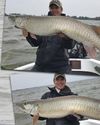
What can Current Do For You?
WATER FLOW IN LAKES IS SUBTLE AND OFTEN OVERLOOKED. BUT MUSKIES USE IT, SO WHY SHOULDN’T YOU?
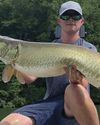
Mountain State Muskies In Spring
CATCH MUSKIES DURING TIMES WHEN NOTHING IS PREDICTABLE

Winter Presentations For Southern Rivers
Winter has arrived, yet in the South it’s still mild enough to keep fishing with the exception of maybe a week or two of an Arctic front.

Tune Up For The Season Ahead
Have you started making your plans for the upcoming fishing year?
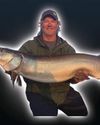
Rob Manthei
Guide Rob Manthei’s love for the Vilas/Oneida County region of northern Wisconsin is deeply rooted. His father and grandfather started taking him there on fishing trips when he was just two years old, and he began guiding full-time at the age of 25.
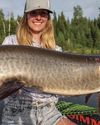
Find The Right Structure In Deep, Clear Water
With breathtaking scenery, vast amounts of water, and complex and diverse structure, clear water Canadian Shield lakes offer some of the most sought-after musky fishing in the world. A bucket-list destination for the passionate and determined angler, there’s something truly special about being in the sanctuary of the great Canadian Shield lakes.
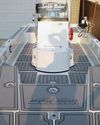
Multi-Species Or Bay Boat ... You Make The Choice
Is there really such a thing as a perfect musky boat? There are so many variables to choose from in the market today. Do I want a casting or trolling boat? Aluminum or fiberglass? Welded or riveted? Do I want a tiller, side console, dual console, or full windshield?
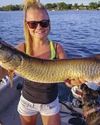
Region To Region
Region To Region

Genetic Study Yields Answers
STUDY SUGGESTS LEECH STRAIN IS NOT THE ‘SILVER BULLET’ FOR WISCONSIN MUSKY WATERS
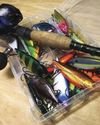
Crawling Crankbaits To Catch Cold Water Muskies
Crankbaits catch plenty of muskies during spring, summer and fall, but the key to catching ’skies in the very early cold water season on these lures involves some special tricks.